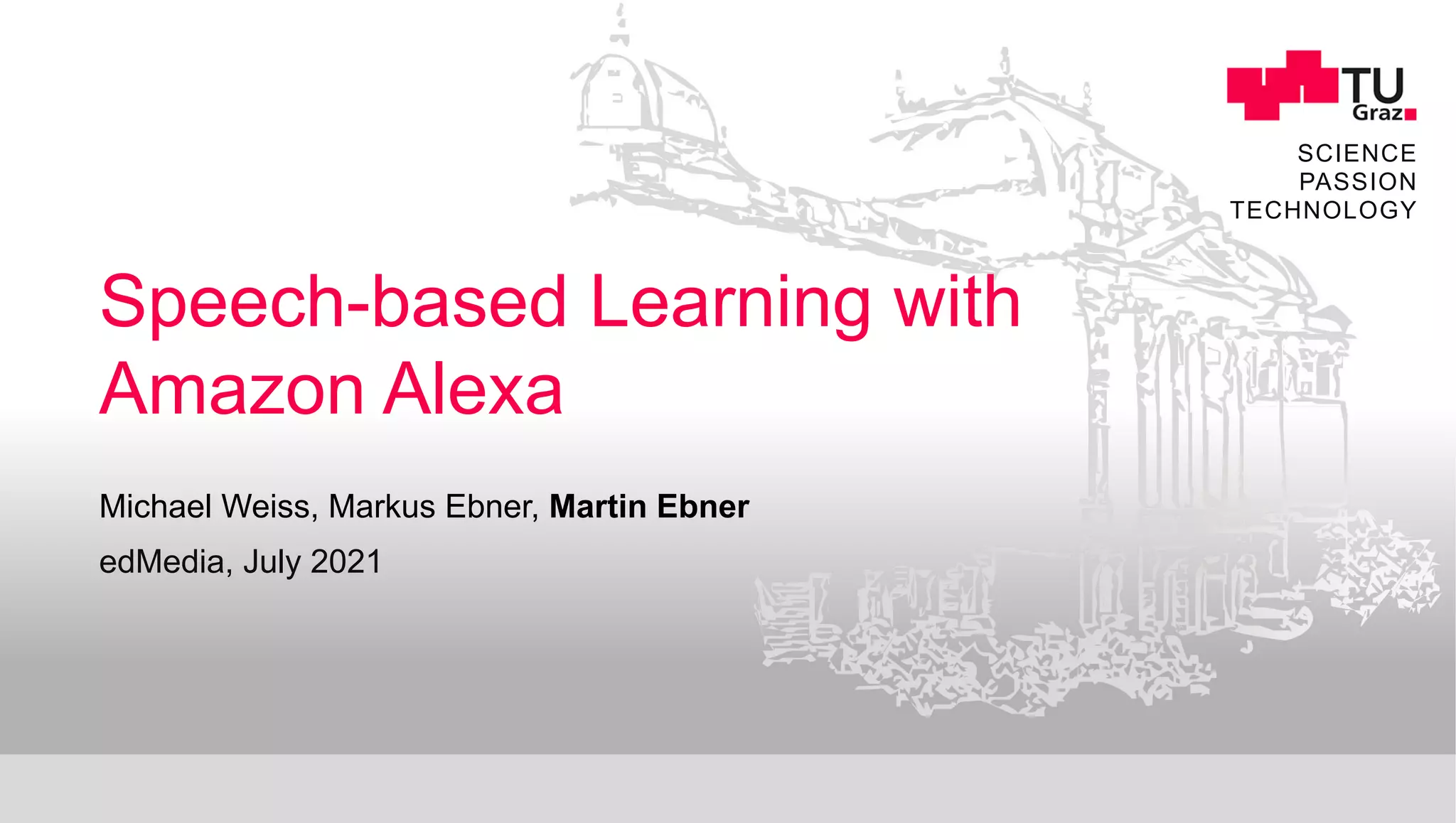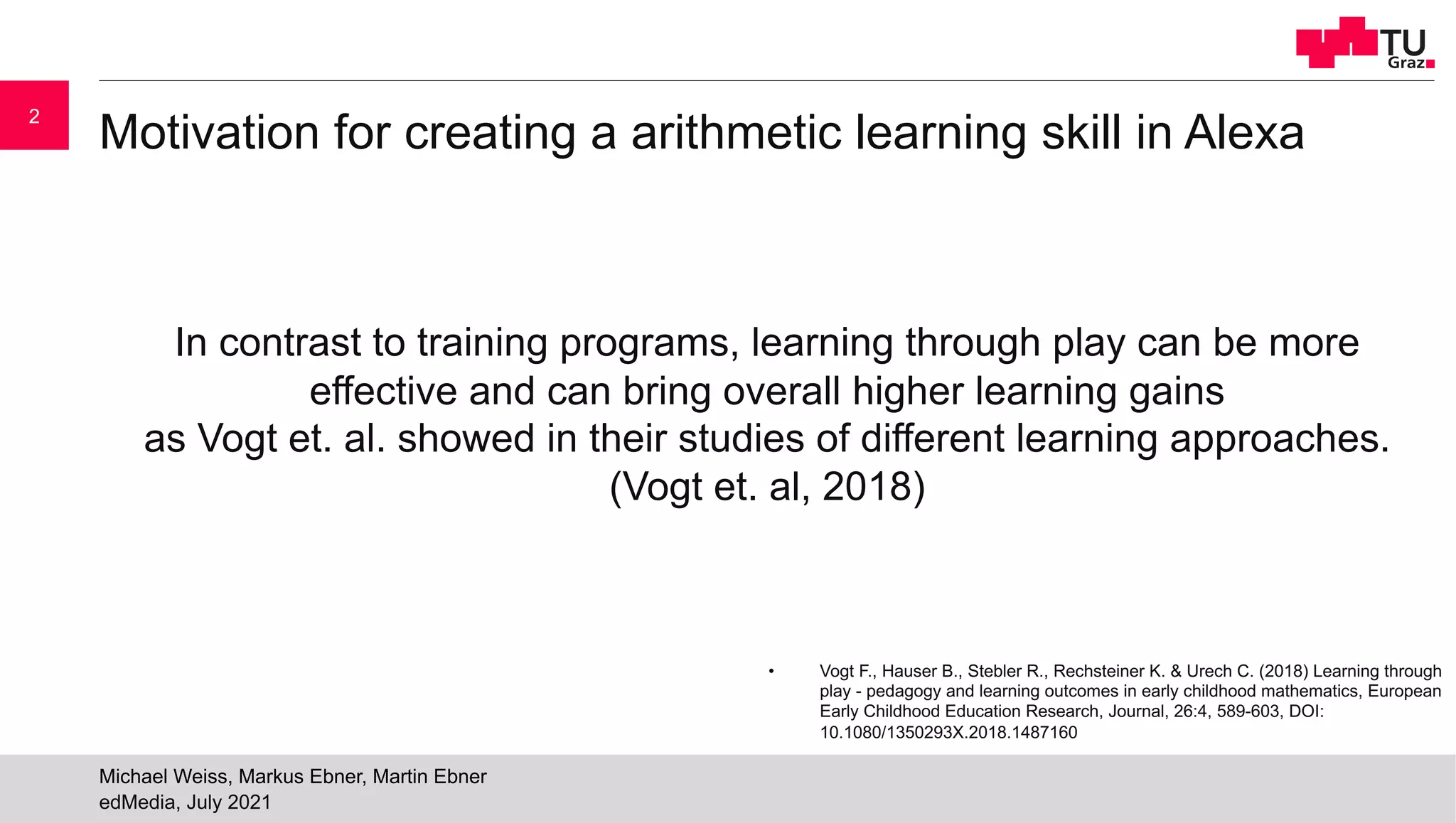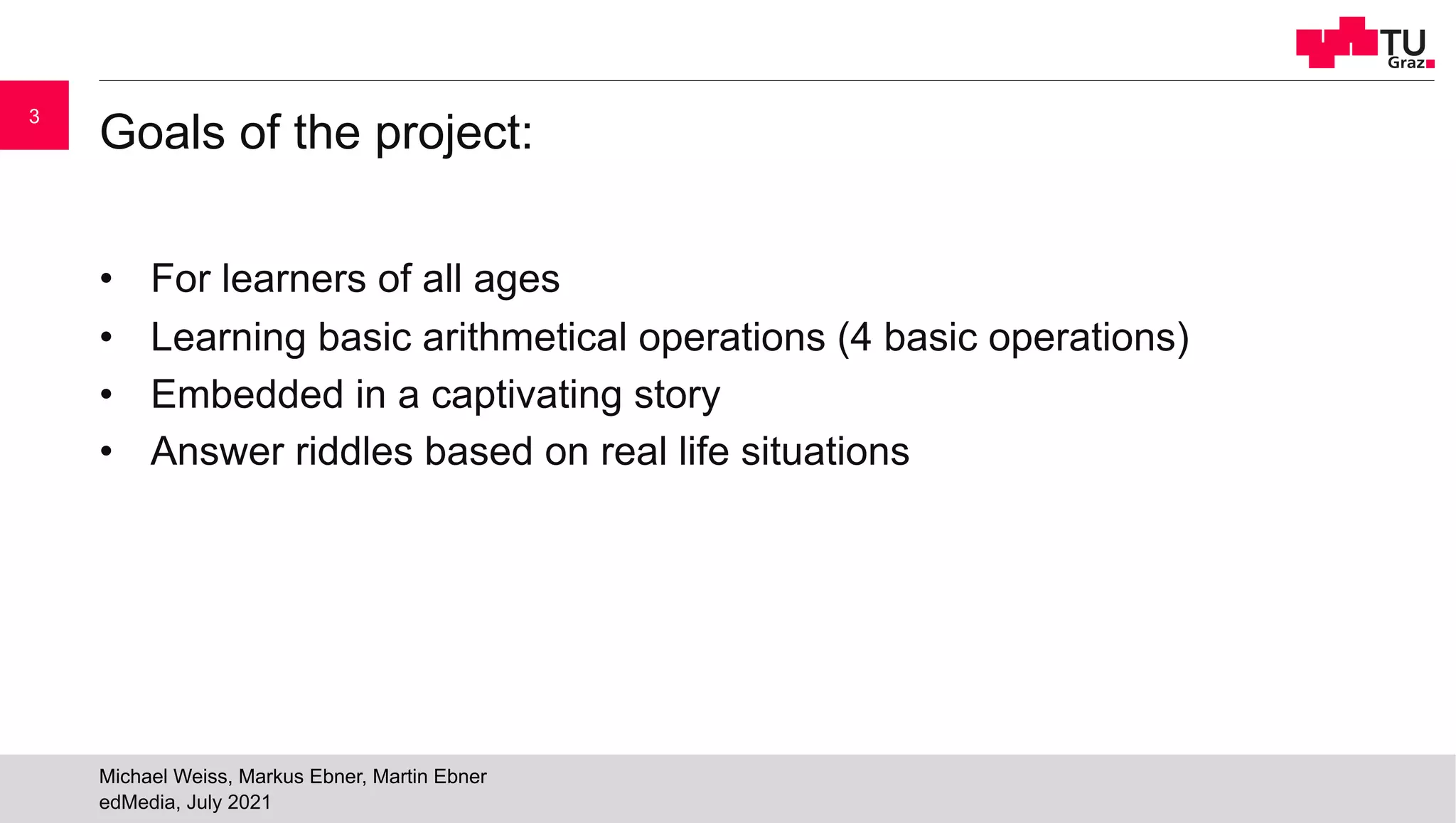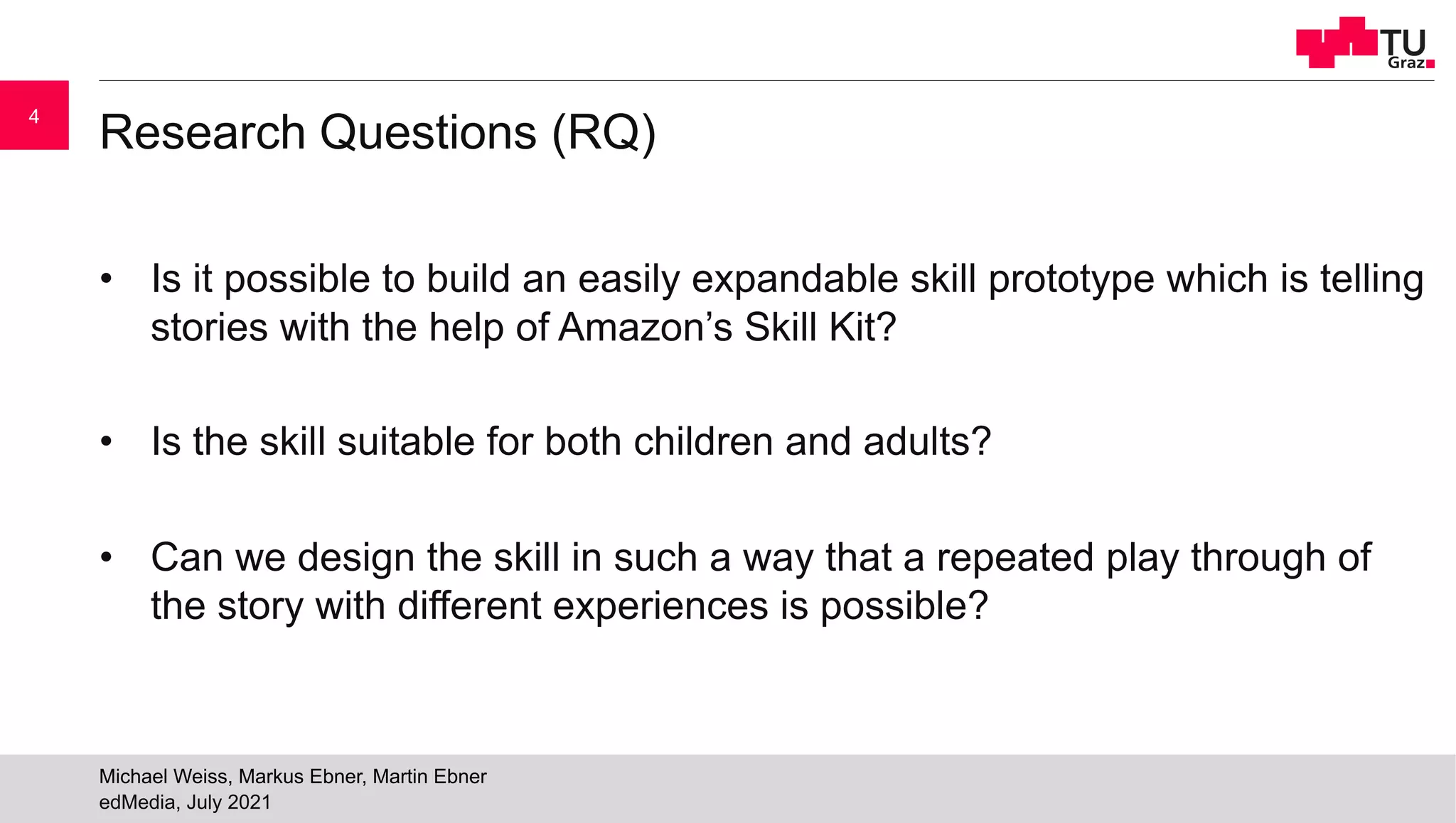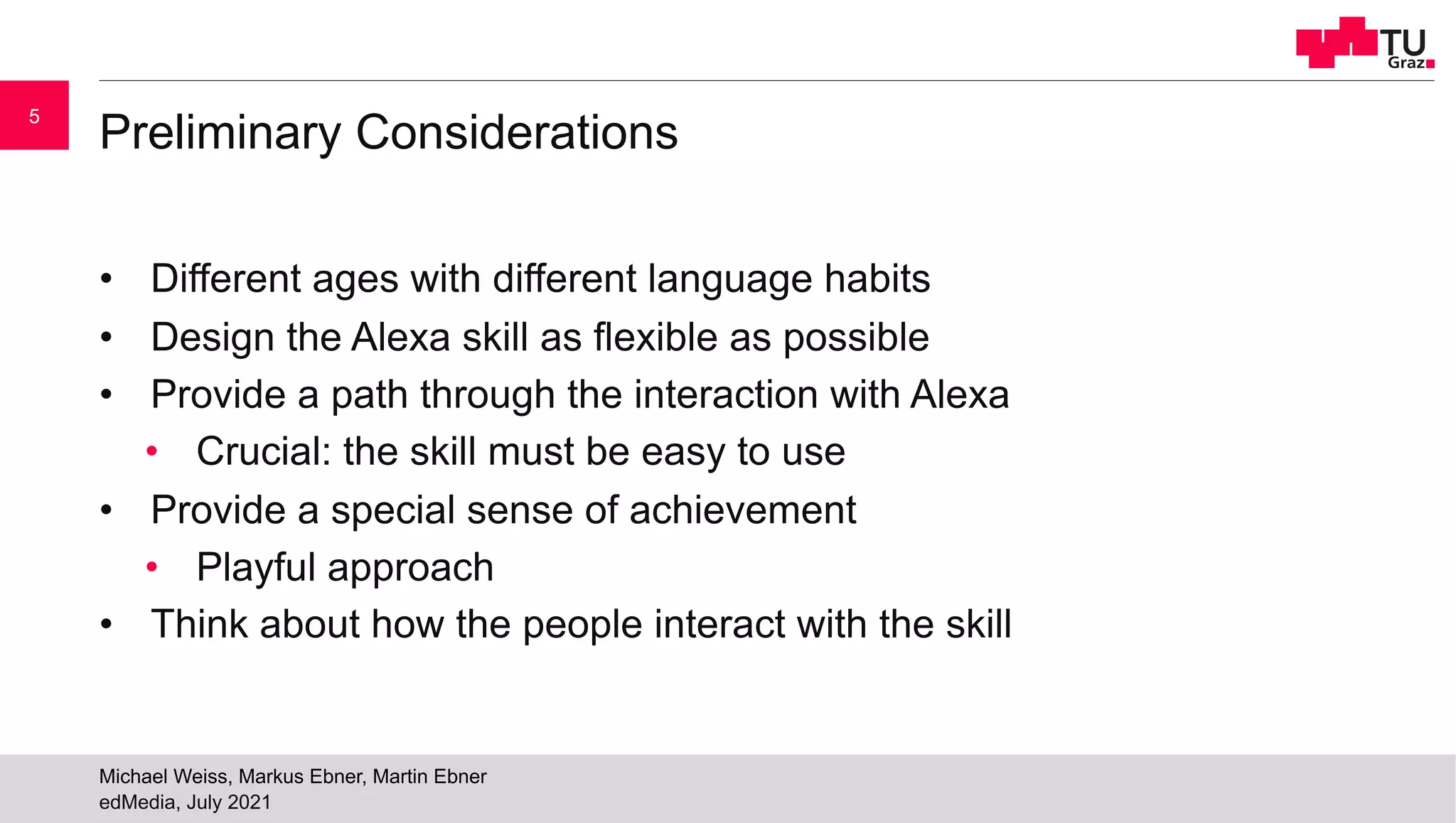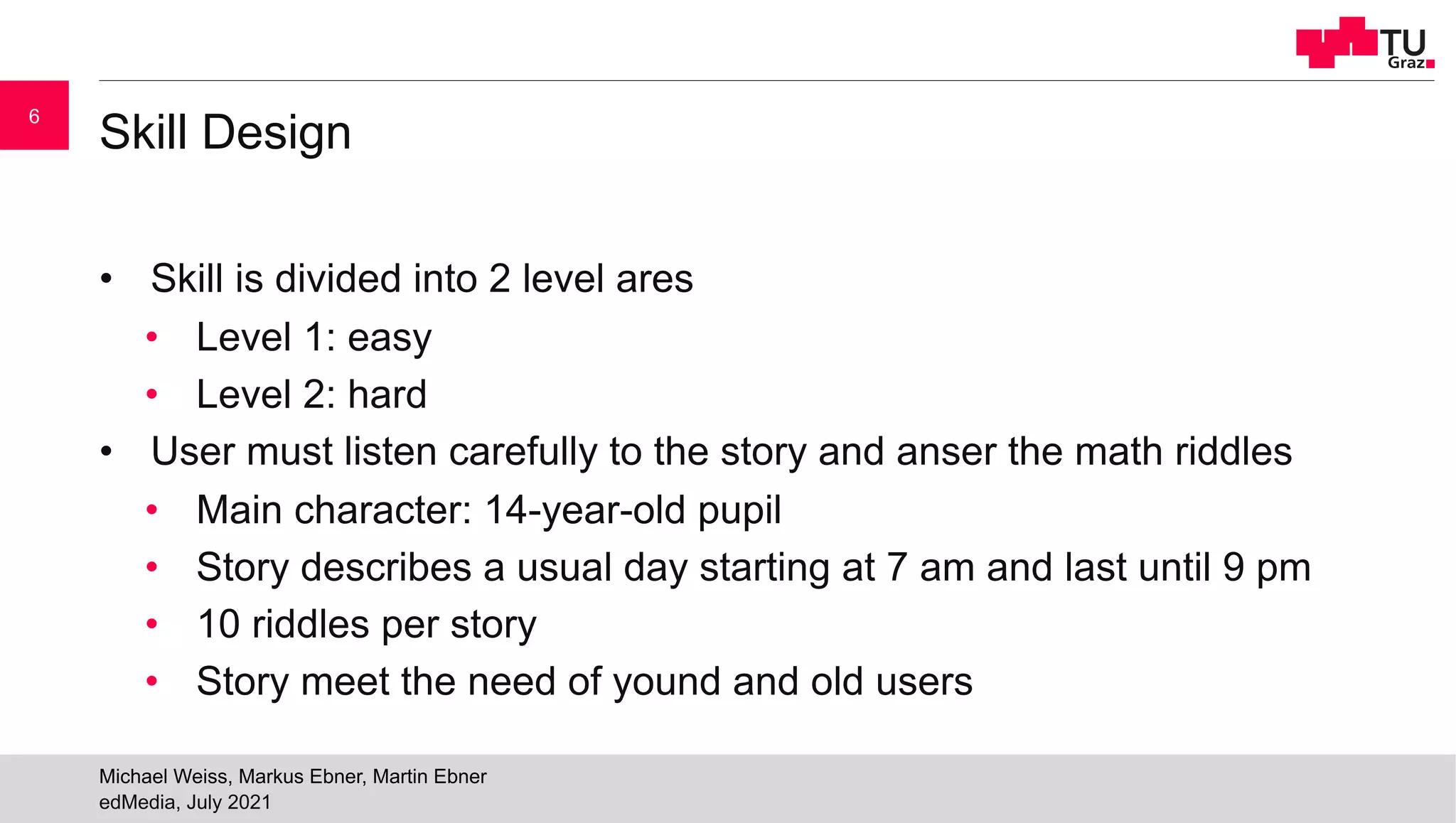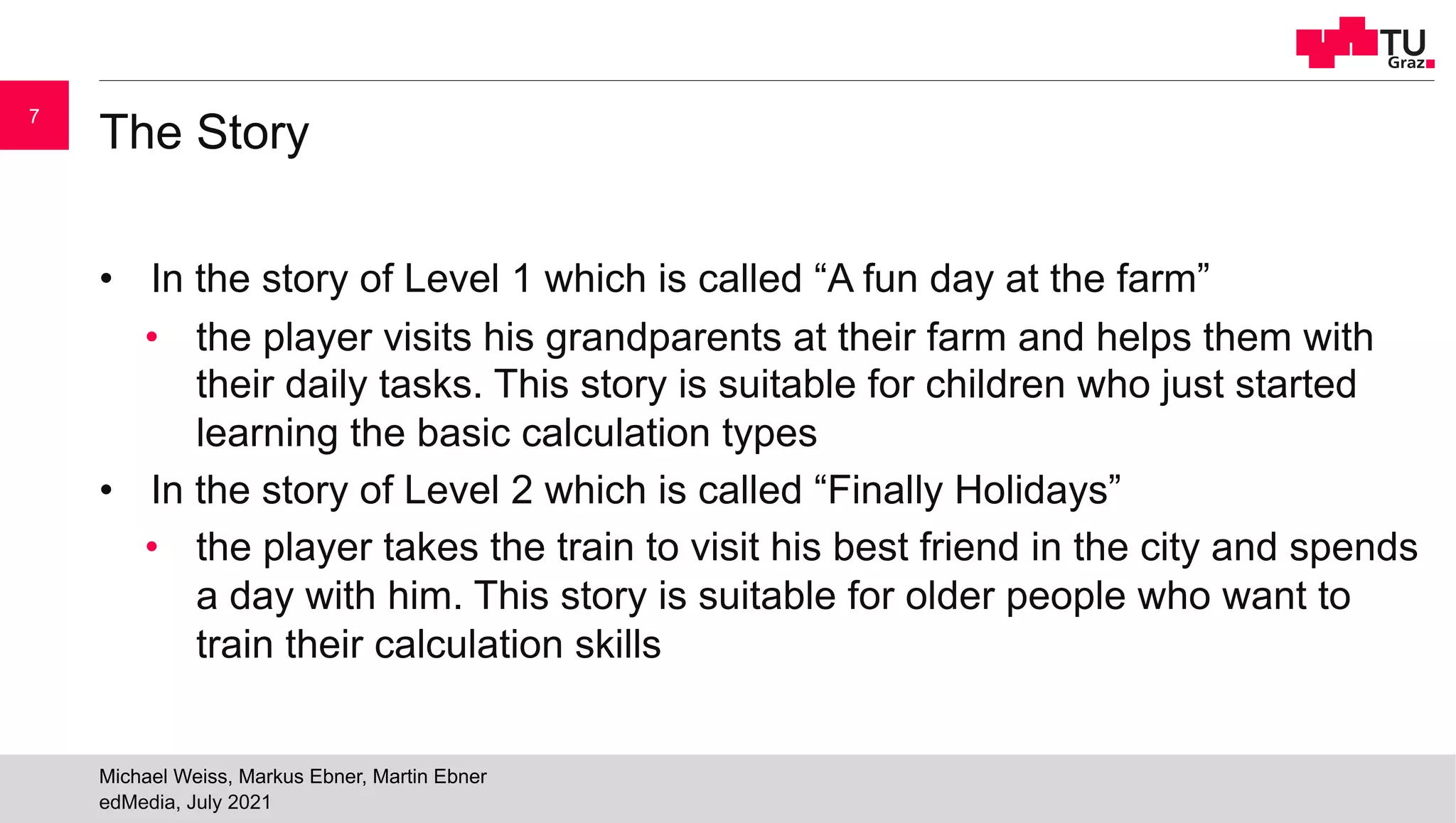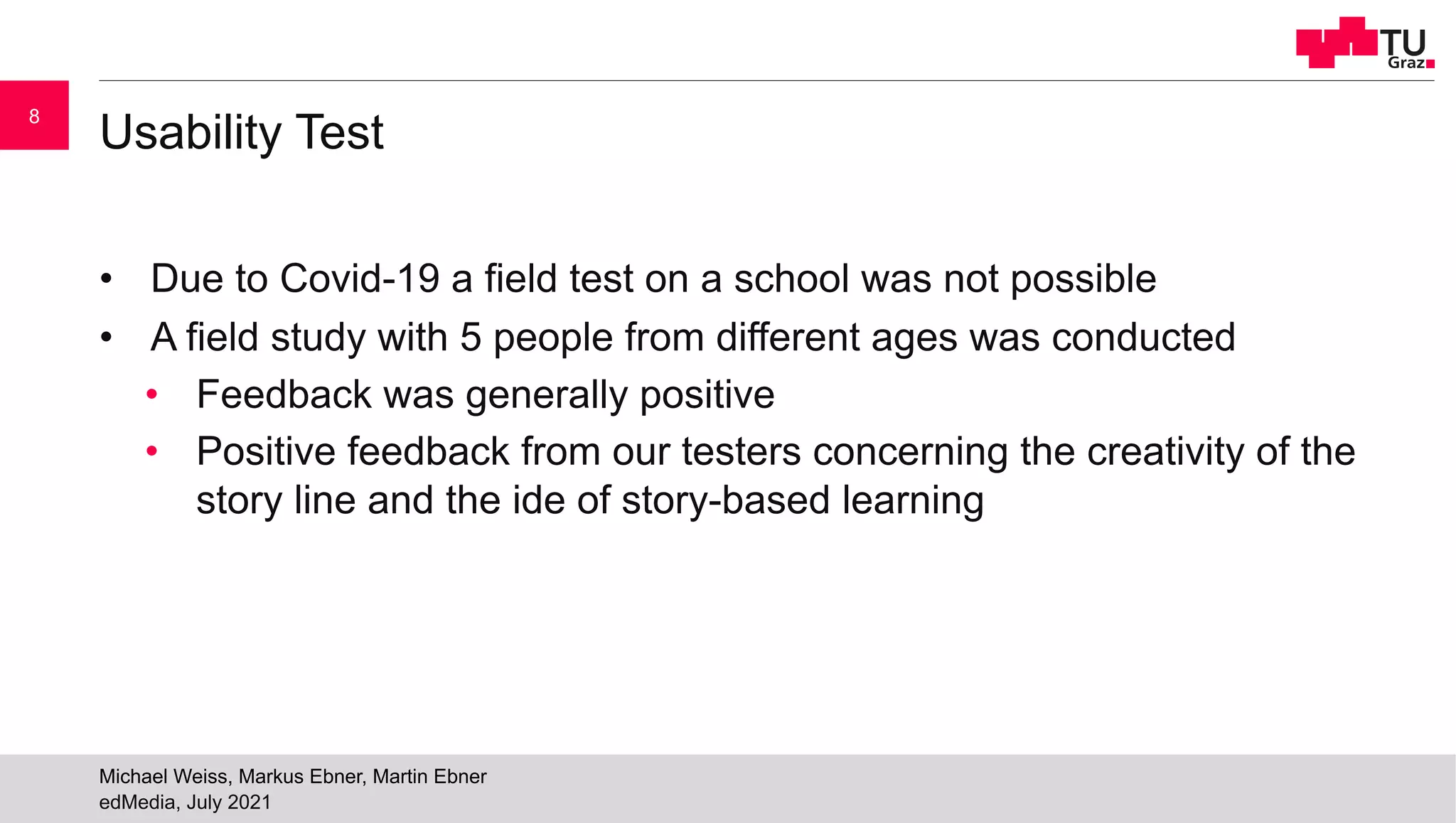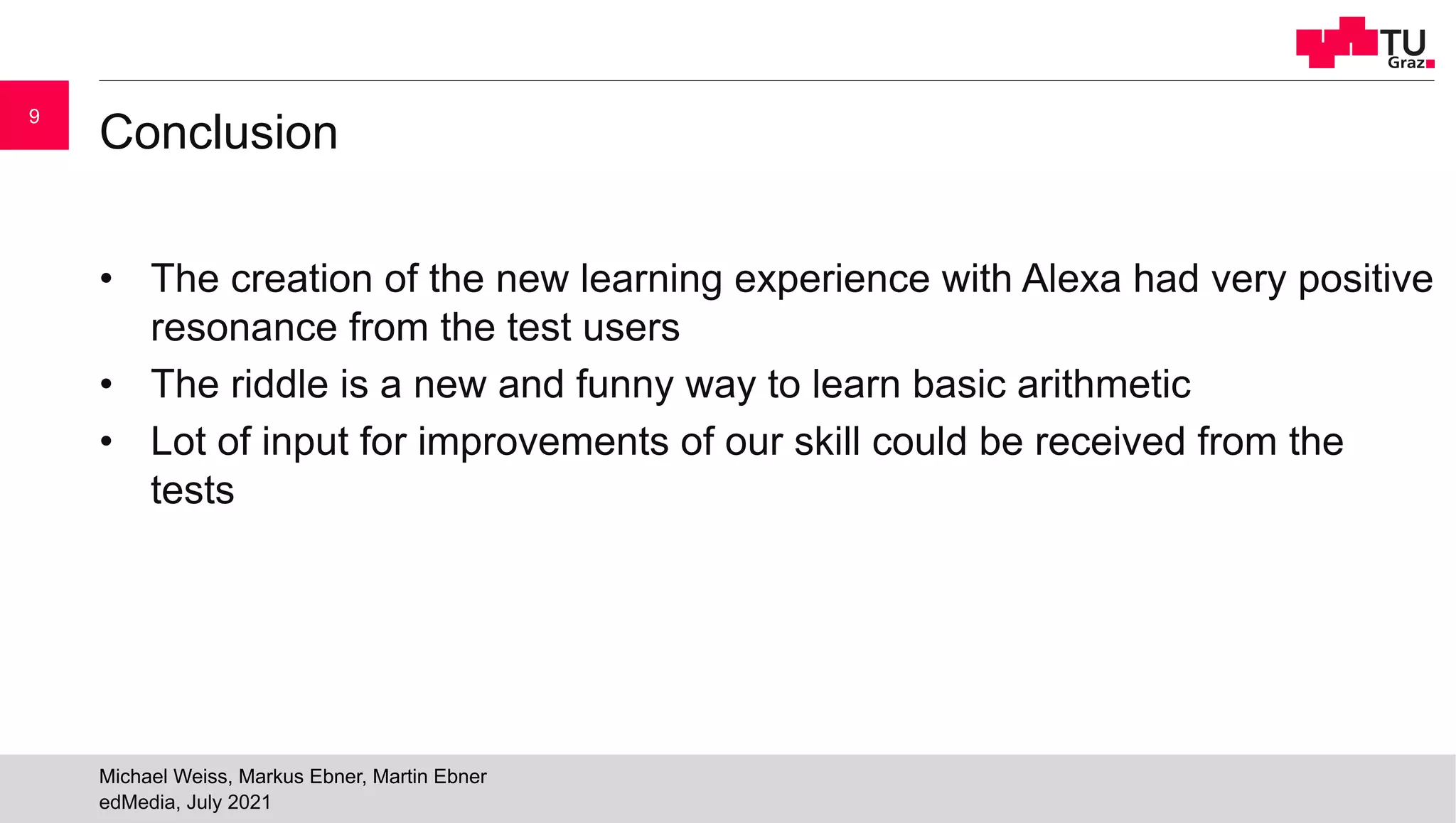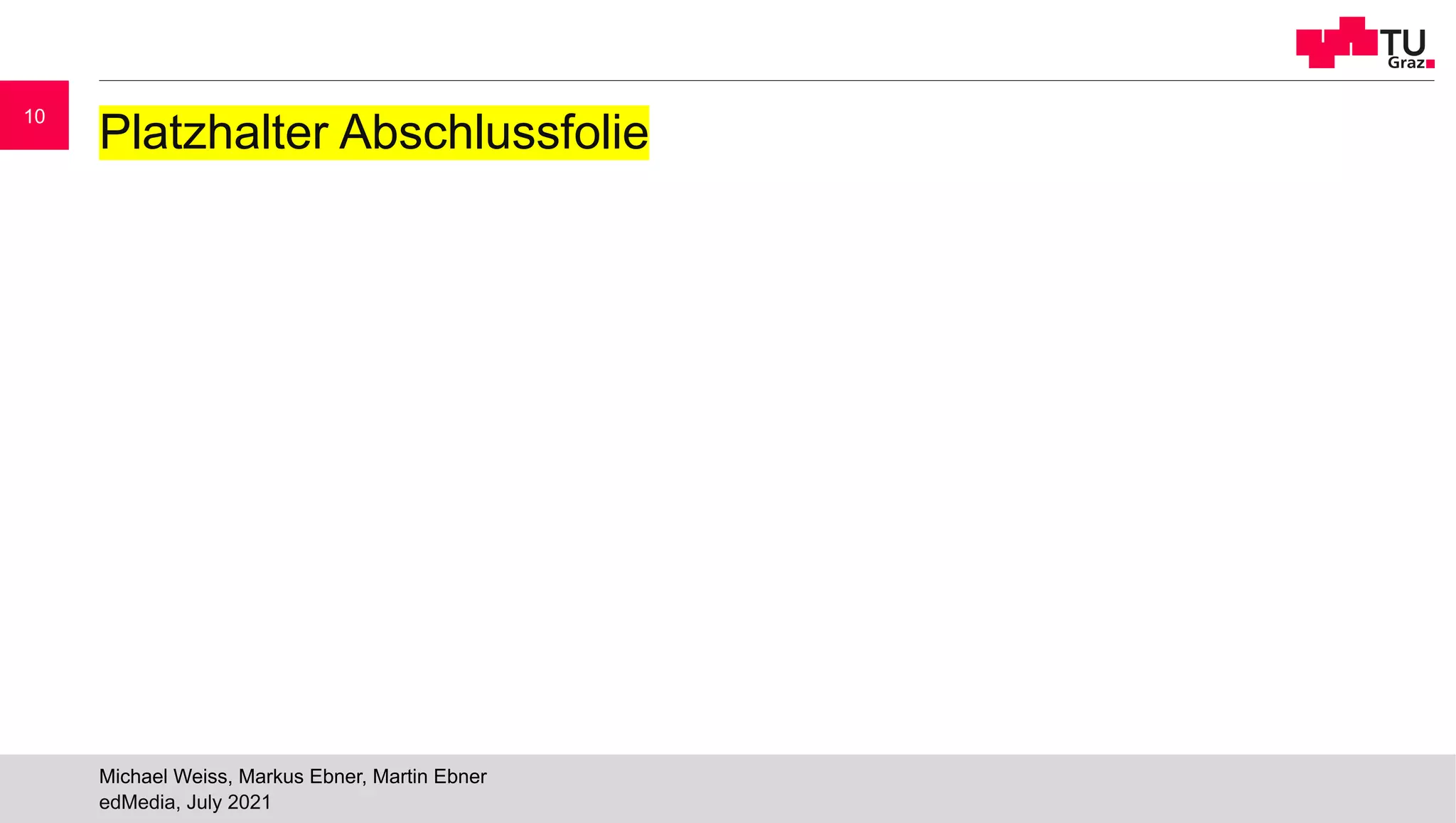The document discusses the creation of an arithmetic learning skill for Amazon Alexa. The goals were to create a skill for learners of all ages that teaches basic arithmetic operations through an engaging story-based format. Two stories were developed, one for easy level and one for hard level, containing riddles about math problems. An initial usability test with 5 participants provided positive feedback on using stories and riddles for learning. The skill aims to make arithmetic learning more effective and enjoyable compared to traditional training programs.
